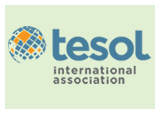|
 TESOL International Association has started its process to write its next strategic plan. But what exactly is a strategic plan? A strategic plan helps an organization communicate its goals to its members, guides the organization’s priorities, provides actions for the organization to achieve its goals, and contains critical elements that guide the organization’s focused work. TESOL International Association has started its process to write its next strategic plan. But what exactly is a strategic plan? A strategic plan helps an organization communicate its goals to its members, guides the organization’s priorities, provides actions for the organization to achieve its goals, and contains critical elements that guide the organization’s focused work.
In a recent blog post, President-Elect Andy Curtis shared a definition of strategic plan, provided by the Ontario Ministry: “A strategic plan acts as a road map for carrying out the strategy and achieving long-term results.” He goes on to say that, although different organizations may have different terminology related to creating their strategic plans, the point of the exercise is the same—“to articulate clearly and concisely what the organization wants to achieve, and to state how it will go about meeting those goals and objectives.”
As TESOL members, we are able to share our thoughts and ideas about what should be part of TESOL’s next strategic plan. To help guide your thinking, you might want to look at TESOL’s current strategic plan, which runs from 2011 to 2014. The plan has three main goals:
- English language learners receive quality education through TESOL International Association’s leadership in the field.
- TESOL International Association members participate in the association to build expertise and are recognized for their involvement and professionalism.
- Individuals and organizations look to TESOL International Association to inform policy and practice.
These goals are ambitious and important for us as an organization, but one issue that we see with these goals is that they cannot really be completed, as they are permanent, ongoing goals—pledges that the professional association has made to all of its members. Therefore, a subcommittee within TESOL’s Board of Directors has been discussing the possibility that TESOL’s current goals—or some version of them—could be more effectively expressed as measurable objectives or in a format like a vision statement.
TESOL does have a mission statement—“To advance professional expertise in English language teaching and learning for speakers of other languages worldwide”—but as the association approaches its 50th anniversary in a couple of years (2016), now may be a good time for the association to think about creating a vision statement as well, perhaps based on the existing three main goals, on some new goals, or on some other vision.
If you go to TESOL’s website, you’ll find a page that lists what we currently refer to as our three main goals, together with four objectives under each of those goals, making 12 objectives total. Three of the key questions that the board subcommittee has been considering are:
- Which objectives in the current strategic plan (2011–2014) are worth keeping in the next strategic plan (2015–2018)?
- Which objectives can be considered completed?
- Which objectives can be considered not completed, but we still want to keep in the next strategic plan?
On that page, you will also see a timeline for the development of the new plan, which started in March at the TESOL 2014 convention in Portland and goes until March next year at the TESOL 2015 convention in Toronto.
The members of the Board subcommittee working on the new strategic plan are:
Andy Curtis (President-Elect)
Deena Boraie (Past President)
Rosa Aronson (Executive Director)
John Segota (Associate Executive Director)
Lillian Wong (2012–2015)
Luciana de Oliveira (2013–2016)
Aya Matsuda (2014–2017)
All of the members of the subcommittee are open to receiving your input on this process. If you have any suggestions, please send them directly to any of us on this subcommittee. We look forward to hearing from you.
_______________________________
Luciana C. de Oliveira is an associate professor of TESOL and applied linguistics at Teachers College, Columbia University, in New York, where she coordinates the MA TESOL program with K–12 certification. Luciana is a member of the TESOL Board of Directors (2013–2016). Luciana is the editor of a new book series, published by TESOL Press, focused on the Common Core State Standards and English language learners.
|